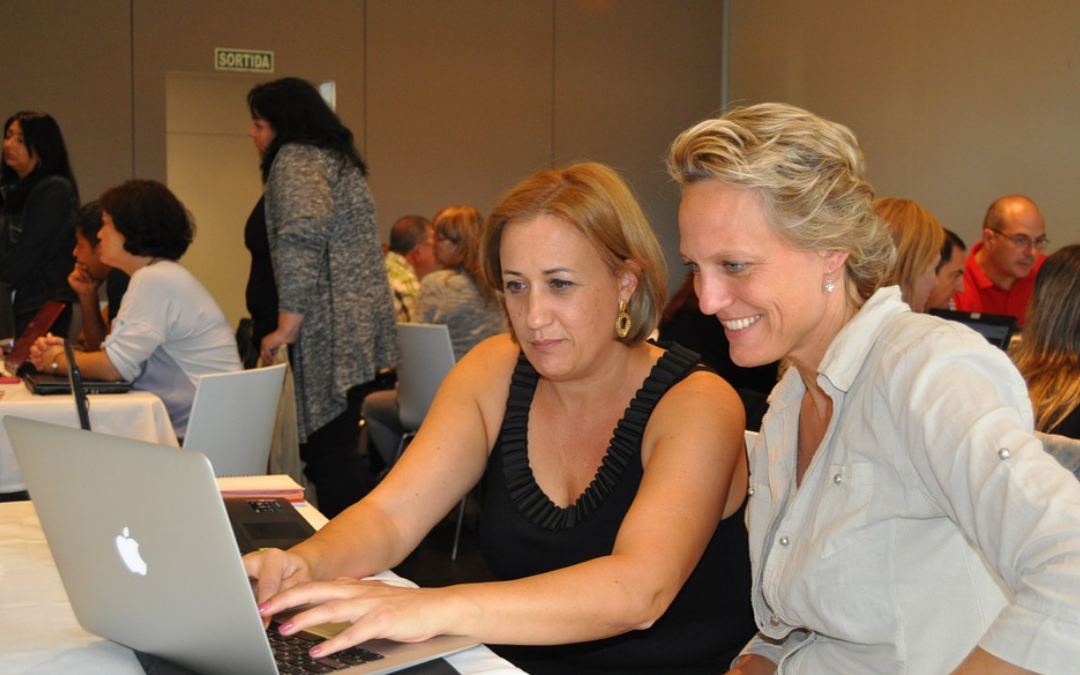Changes in the labour market and in society, along with new personal circumstances, have a profound effect on one’s life. To facilitate coping with them, the ESF project, called Guidance for employees, provides support in the form of guidance for education, which is also related to career and personal development. The target group of the project is employees, especially those less educated and over 45 years of age. The aim of the project is to increase access to and enrolment in programmes for constant bettering the competences necessary in view of the labour market demands, increased employability and mobility, personal development, and more active involvement in modern society.
The project links two activities: guidance for education, and validation of prior learning of employees. The data shows that the guidance service providers place greater emphasis on the first activity, as between June 2016 and December 2019, out of all 14,662 adults involved, only 8% took part in the validation of prior learning.
Interviews with counsellors revealed several reasons for the above. According to the counsellors, the validation procedures are demanding, taking up a lot of their time and financial resources, especially when they have to bring in other experts. The results of validation procedures are not yet widely recognised. Both employers and employees are not fully aware of the benefits they can derive from these results. These are also not included among the project indicators.
In 2019, the SIAE in the context of project evaluation field visits, encouraged counsellors to strengthen the validation of prior knowledge of employees. To this end, we will increase our support for counsellors conducting the validation procedures, and organise additional training. We are aware that professionally trained staff is crucial for the quality implementation of procedures. In addition, we want to strengthen and raise awareness of the importance and benefits of validation, by informing different publics, conducting various promotional activities, and networking at all levels.
A new study by Cedefop titled Coordinating guidance and validation addresses ways to effectively integrate guidance and validation of non-formal and informal learning. There are 13 examples of practice from 12 European countries, showing the integration of validation and guidance in various contexts and institutional settings. Based on the analysis of these practices, the final section of the study portrays the factors for successful coordination of the two areas and the recommendations.
In order to successfully coordinate guidance and validation, the study particularly highlighted the importance of providing adequate information and guidance before a decision to undergo validation is taken, throughout the entire validation process, and after its conclusion. Guidance should provide information on the benefits of, and opportunities for validation, as well as on the relevant procedures available (as stated in the Recommendations of the Council of the EU from 2012).
Examining and profiling an individual’s skills should not only be a way of identifying those skills, but should also include assessing their suitability for validation. Guidance should be made available to those involved in validation procedures throughout all the phases (identification, documentation, assessment, and certification) and should continue after the procedure is completed, as an individual’s career development goals and expectations may evolve or even change significantly over time. The importance of using common standards or reference frameworks for identifying, documenting, and assessing skills, and providing for the quality of staff, is also emphasised. Moreover, other conditions are mentioned, ranging from the provision of adequate financial and human resources to political and professional cooperation.
This study reaffirmed the importance of not only providing appropriate conditions for the implementation of procedures, but also engaging with different stakeholders to raise awareness of the importance and benefits of the general public, in order to successfully integrate guidance and validation. This, however, is something which has been an important emphasis of our project activities all along.
The ESF project, Professional support to information and guidance activities, and validation of non-formal knowledge 2016–2022, is partly financed by the EU and the MESS.
Urška Pavlič (urska.pavlic@acs.si), SIAE


